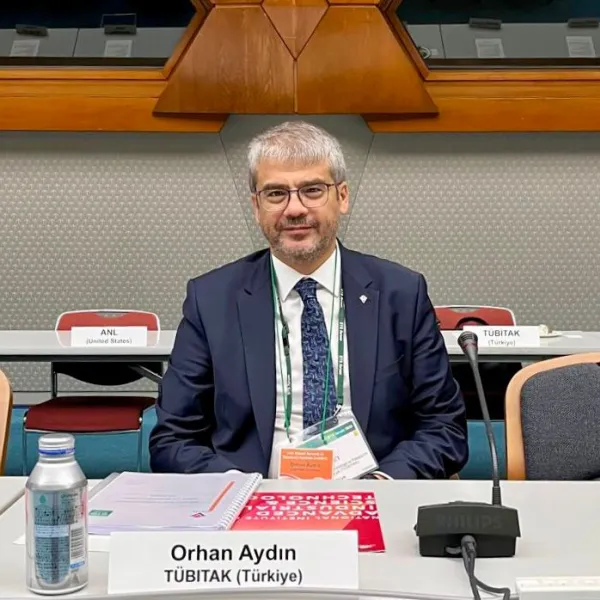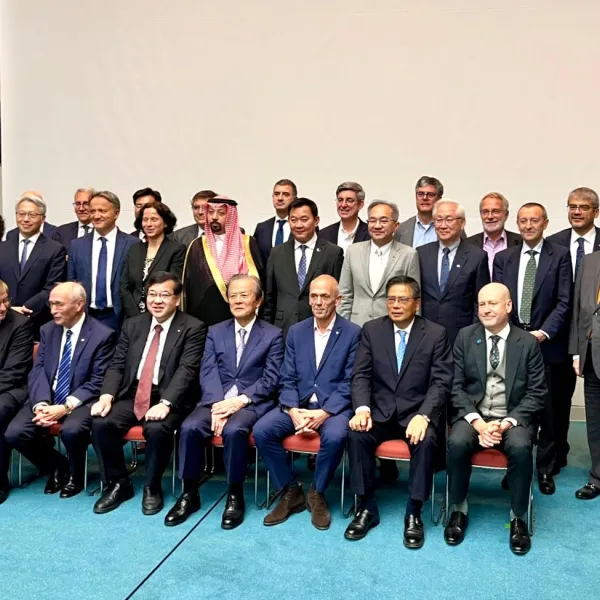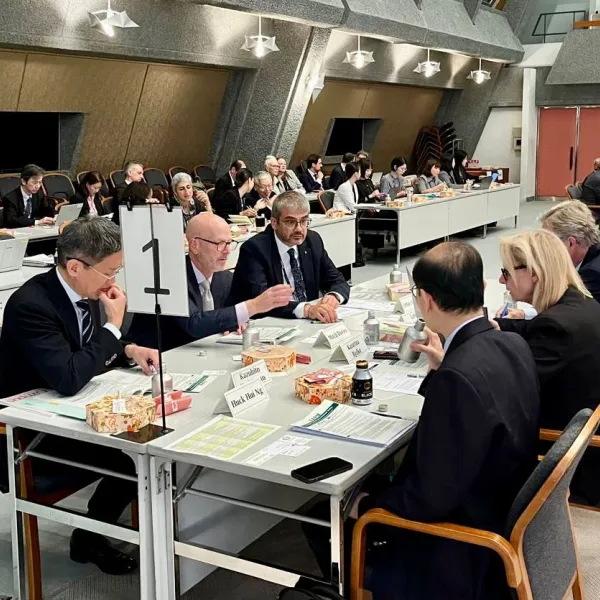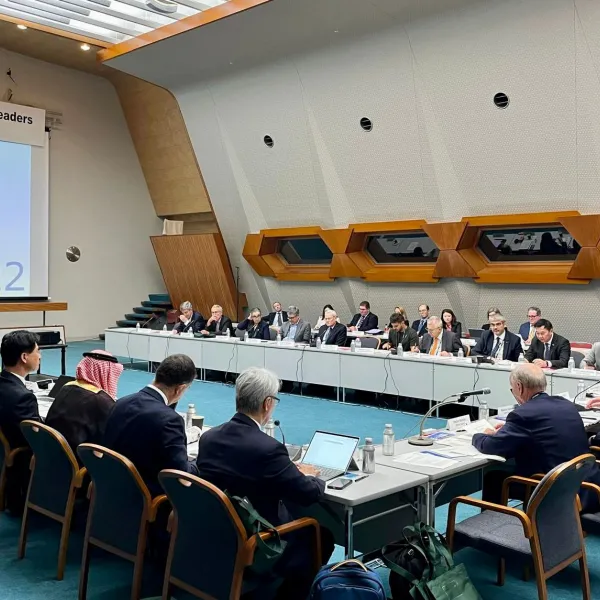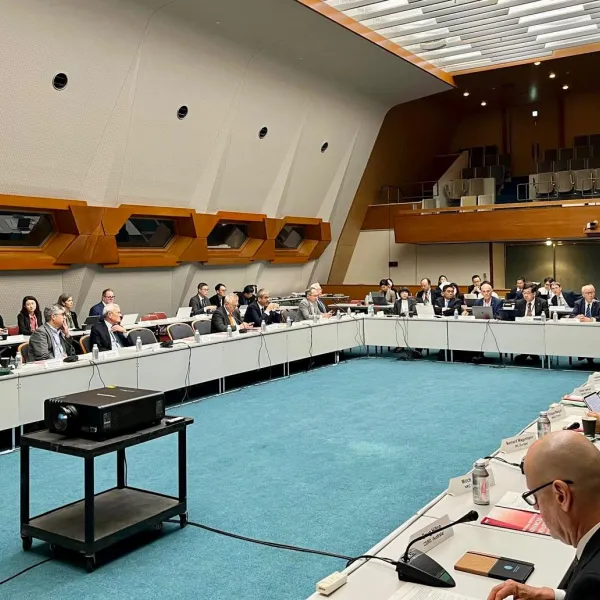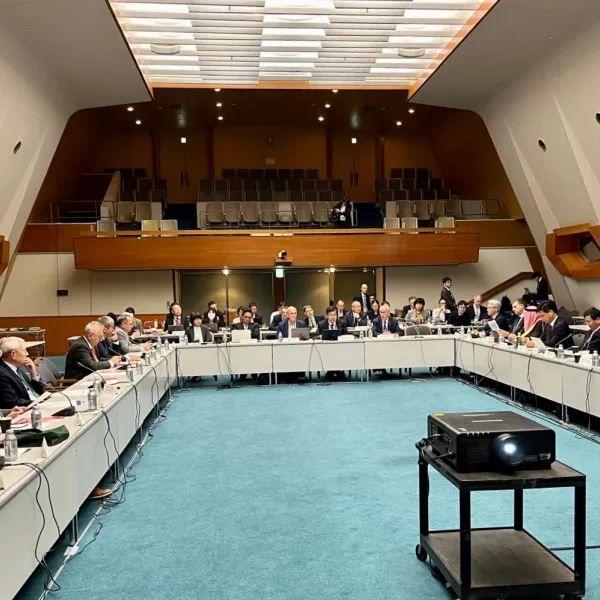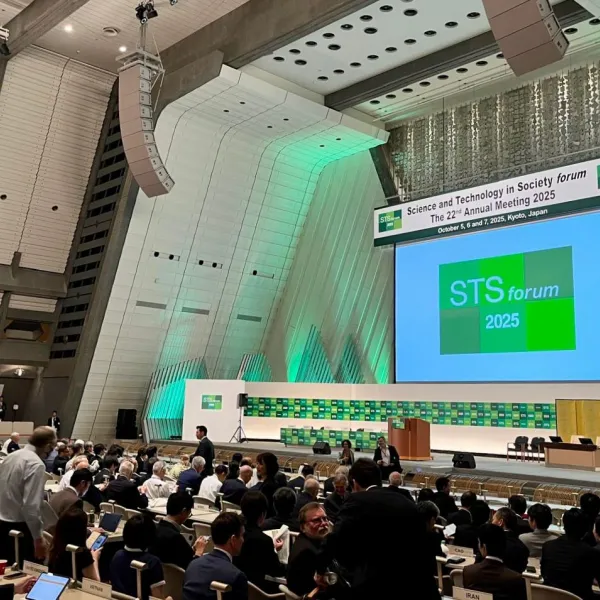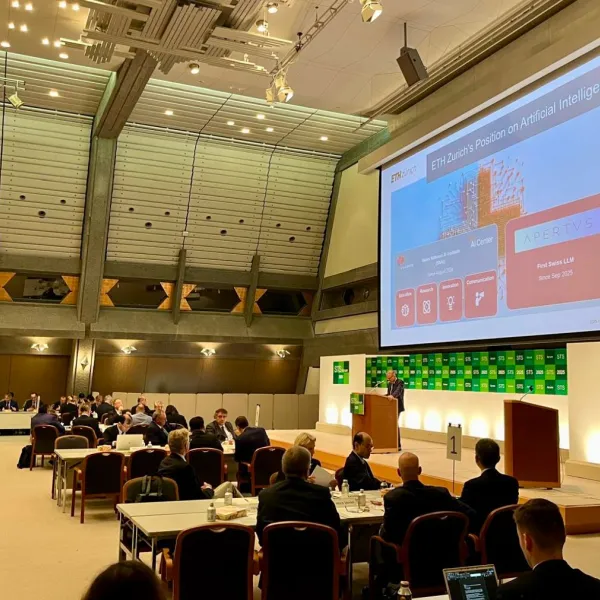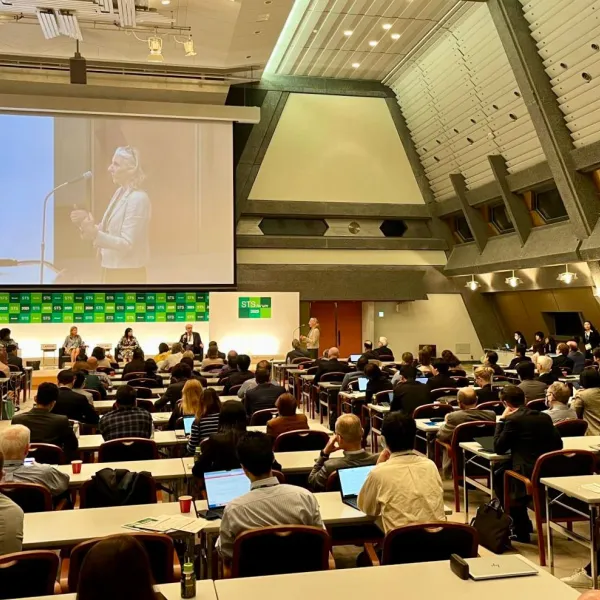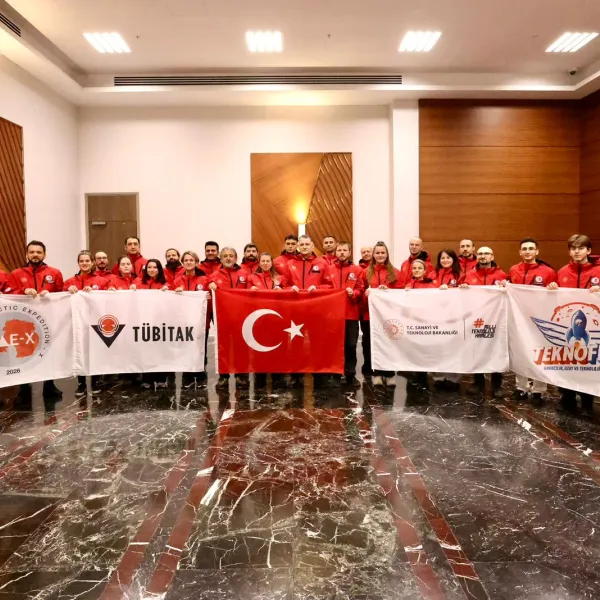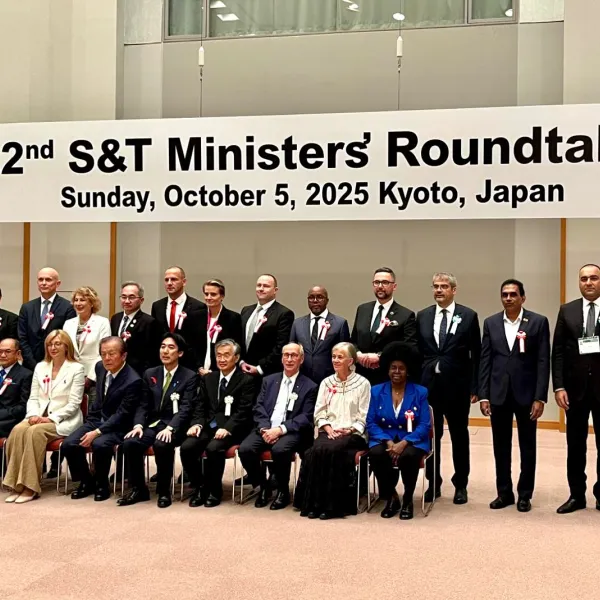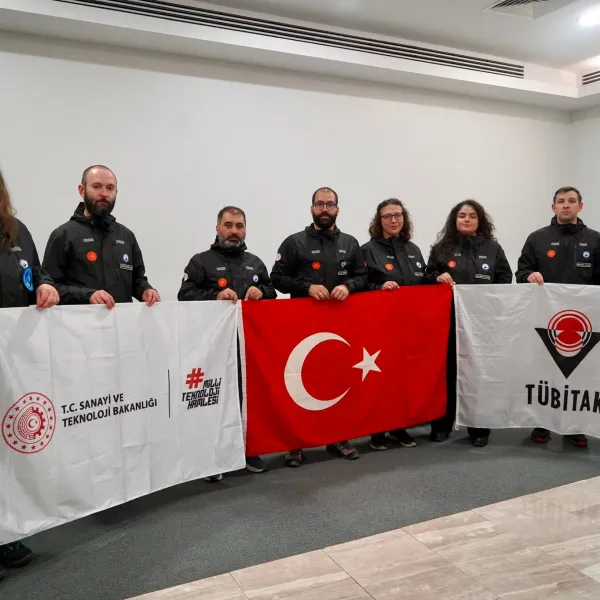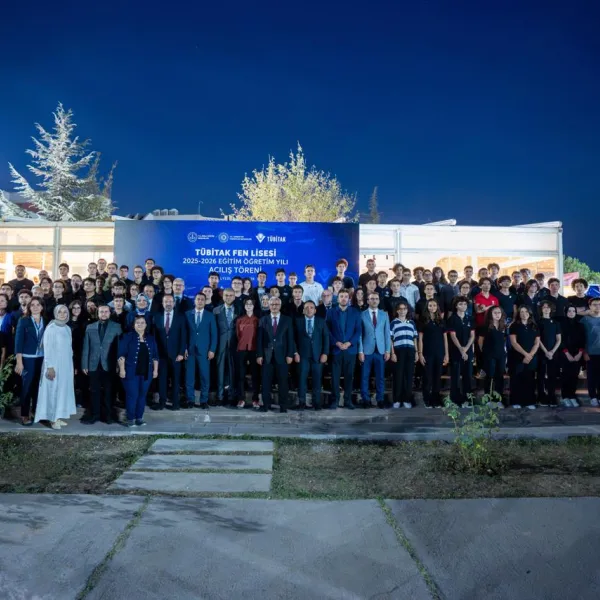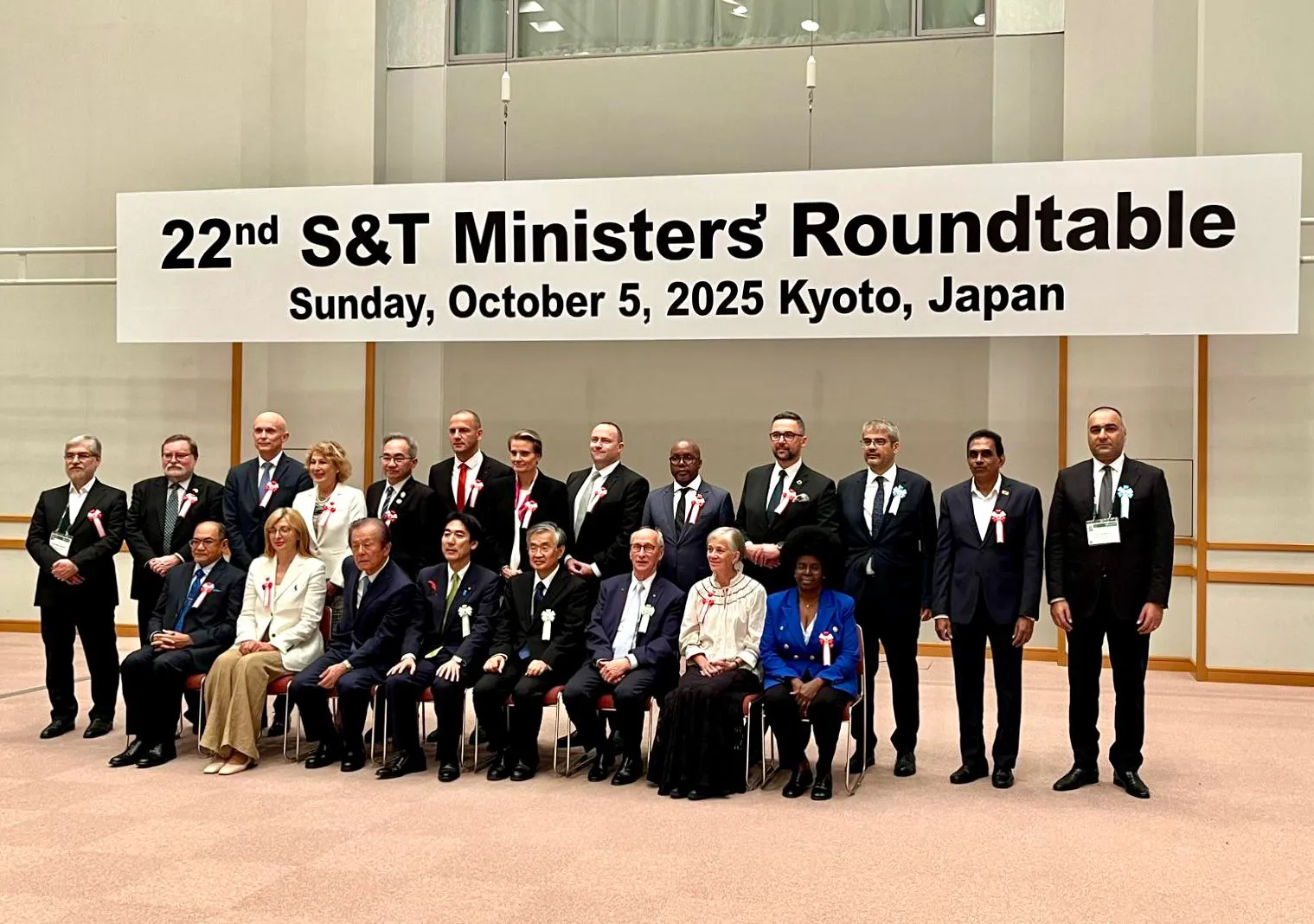
TÜBİTAK President, Prof. Dr. Orhan Aydın, participated in high-level meetings held as part of the Science and Technology in Society (STS) Forum, which took place in Kyoto, Japan, between 4 and 7 October 2025.
Bringing together leaders shaping the future of science and technology, this year's Forum focused on the social impacts of artificial intelligence, sustainability, and strengthening science diplomacy.
Global Summit of Research Institute Leaders
Our TÜBİTAK President, Prof. Dr. Orhan Aydın, attended the Global Summit of Research Institute Leaders (RIL) meeting held on the first day of the forum. Held this year under the theme ‘Working Together to Strengthen Trust in Science,’ the summit brought together representatives from research institutions in 27 countries to exchange views on research safety, research ethics, reproducibility, and the development of open science.
Speaking at the meeting, Prof. Dr. Orhan Aydın emphasised that trust in science is as important today as science itself. Prof. Dr. Aydın said in his speech:
"Science is a universal value that brings people together beyond countries, languages and cultures. However, the permanence of this value depends on science being conducted openly, reliably and in interaction with society.
As TÜBİTAK, we are working to strengthen trust in science within the research ecosystem. Scientific integrity, ethical principles and data sharing form the basis of our institutional culture. The open science infrastructures we have developed enable research data and results to be shared in an accessible, verifiable and transparent manner.
We operate in rapidly developing fields such as artificial intelligence with transparency, adherence to ethical values and principles of social benefit.
President Aydın also made the following assessment:
"Strengthening trust in science requires listening to society and aligning our scientific priorities with the real needs and values of society. From public health to clean energy, from social resilience to everyday life expectations, the closer science is to people, the stronger the trust it gains."
Prof. Dr. Aydın concluded his speech with the following words:
‘Strengthening trust in science requires continuity. We are committed to making science reliable, high-quality and beneficial for everyone through openness, honesty and a participatory approach. We aim to further strengthen this effort through national and international collaborations.’
The participants agreed on the preservation of scientific integrity, increasing transparency and explainability in artificial intelligence, overcoming the boundaries between fundamental and applied research, and strengthening science's communication with society. They committed to continuing their collaboration to make research more open, secure, and reliable.
Science, Technology and Innovation for Future Society Session
Prof. Dr. Aydın also participated in the high-level session titled ‘Science, Technology and Innovation for Future Society’ organised within the scope of the STS Forum.
The session, which brought together representatives from different countries in the fields of science, technology and innovation, addressed science and technology policies that will shape future societies, the role of innovation in sustainable development, and the social impacts of transformative technologies such as artificial intelligence.
The session stood out as an important international gathering where science and innovation policies were discussed on a global scale and priorities for the future were addressed.
Funding Agency Presidents’ Meeting
The Funding Agency Presidents’ Meeting (FAPM), held on the third day of the Forum, was attended by representatives of research funding organisations from 62 countries. This year’s meeting was organised under the theme of “Joint Development of Artificial Intelligence-Literate Human Resources”.
In his assessment at the meeting, Prof. Dr. Aydın stated that artificial intelligence has become not only a field of research but also an important force transforming many sectors, from industry to public services.
Emphasising that funding institutions need to develop strategic approaches to this transformation, Aydın stated that efforts to develop human resources should address learning, research and industrial applications together.
The President of TÜBİTAK also shared Turkey's practices in this field, citing examples such as the industry doctoral programme, researcher exchange programmes, capacity development activities aimed at enhancing researcher competencies, and the high-performance computing infrastructure TRUBA, which strengthen industry-academia interaction.
Emphasising that ethical, legal, and social dimensions must also be considered for responsible and reliable artificial intelligence, he provided information about the TÜBİTAK Artificial Intelligence Institute's work in this direction.
The session addressed topics such as designing joint programmes with industry to develop artificial intelligence literacy, research-industry mobility, responsible data use, and compliance with international standards. Prof. Dr. Aydın stated that the session provided a productive discussion environment that shed light on the future of artificial intelligence and human resource policies.
Bilateral Contacts and Meetings
Prof. Dr. Orhan Aydın met with research institutions, funding agencies, public and industry representatives from different countries during the STS Forum. These meetings included assessments of mutual cooperation opportunities, the development of joint ventures, and the enhancement of scientific interaction.
These contacts made a significant contribution to strengthening TÜBİTAK's science and technology diplomacy activities at the international level and evaluating new opportunities for cooperation.
About the STS Forum
Held annually in Kyoto, Japan, the Science and Technology in Society Forum (STS Forum) is a prestigious international platform that brings together high-level representatives from the fields of science, technology, business, politics and civil society. The Forum aims to highlight the role of science and technology in seeking solutions to the global challenges facing humanity, while building bridges between countries and developing a shared vision. Each year, the discussion agenda covers a range of topics, from climate change to artificial intelligence, research security to innovation ecosystems; the declarations published at the end of the meetings guide global science diplomacy.
The declaration issued at the end of the 2025 meeting highlighted the social impacts of artificial intelligence, sustainability, and the preservation of scientific integrity, emphasising the need to strike a balance between fundamental scientific research and goal-oriented innovation aimed at solving social problems, and to strengthen trust in science.
Participants committed to continuing their collaboration to make research more open, secure, and reliable.

